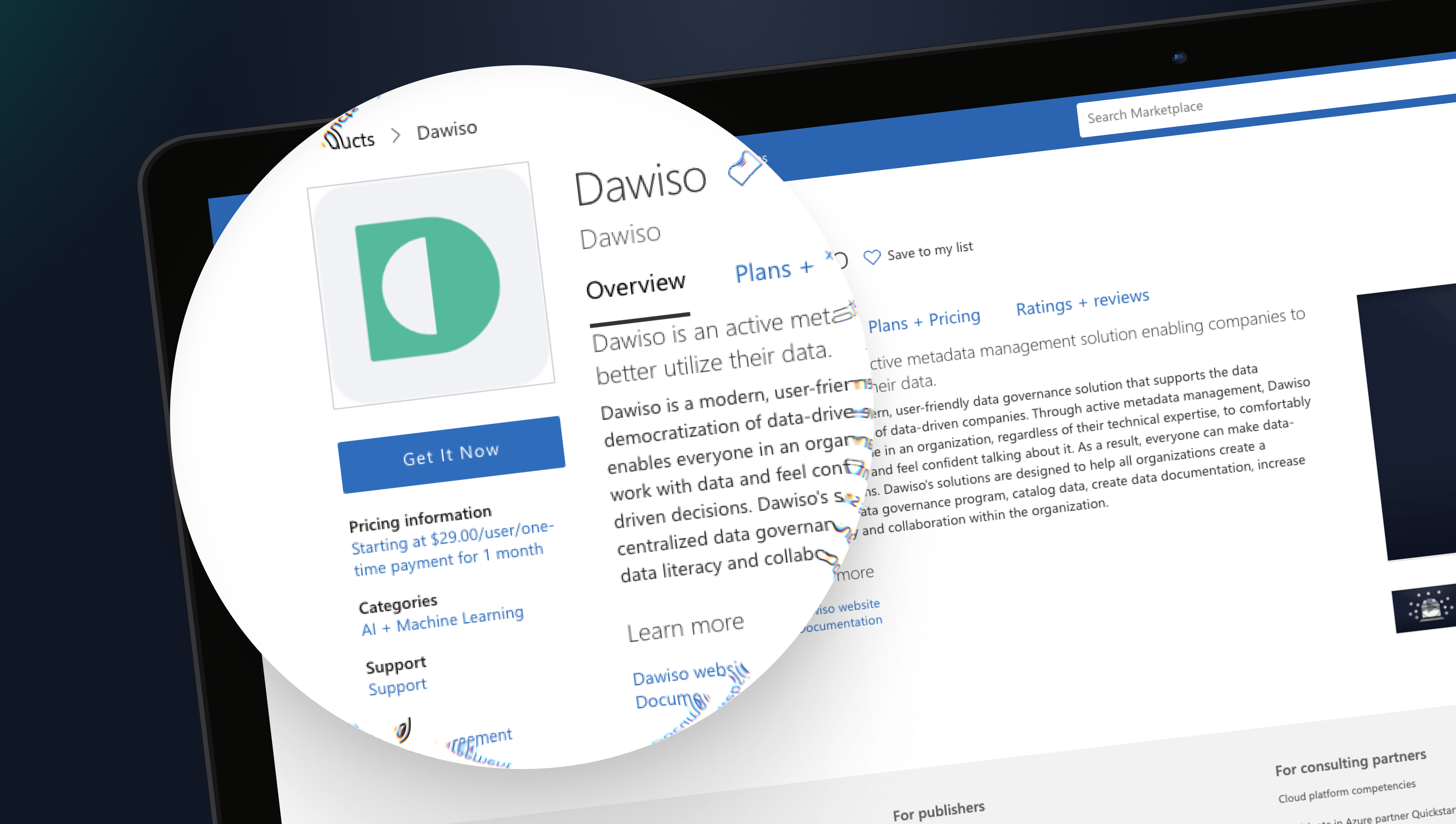While core financial processes are a top priority, finance teams are also heavily influenced by data managed by other departments. This includes things like product information, customer details, and supplier records. Finance doesn't necessarily need to own this data, but it needs to be involved in how it's governed. This is probably one of the motivating factors for finance leaders to become drivers in implementing data governance processes. Indeed this is the case in 55% of organizations, according to Dawiso's latest research.
It is in their interest to have the right data and, more importantly, to have it available. However, historically, the idea of data governance has been associated with regulation and has a negative connotation, which has led to employee resistance. Today, many initiatives focusing on data governance prefer using alternative terms. For example, they rename tools to "data portal" instead of data governance. This resistance needs to be overcome by those whose interests are most at stake - finance people (even though it should be about the common interest and well-being of all).
The main problems
The critical issue is data accessibility, not necessarily data unavailability. Companies often lack the right data, or the right level of detail, at critical decision points. The key question is not whether the data exists, but why it isn't available. The data may very well exist, but it may be siloed or inaccessible to the right people.
Poor data management practices can introduce errors, duplicates, and outdated information. People get overwhelmed and unsure which report to trust, hindering their ability to make informed decisions based on data. This leads to the second problem, which is low trust in data and poor data culture. Poor data culture is also one of the consequences of the third problem, inconsistent metrics.
Inconsistent metrics, a 30% time sink of pointless arguing
Inconsistent metrics plague companies striving for data-driven decisions. Siloed information and duplicate reporting, often caused by poor data governance, create a mess. Finance departments lacking real-time sales data or marketing and product teams define "active users" differently. This inconsistency wastes time and ultimately hinders effective decision-making. Reliable data is the foundation of informed choices, and inconsistent metrics chip away at that foundation.
One of the respondents from a financial institution in Dawiso’s survey said that they spend up to 30% of their workday arguing about which metrics are correct. Inconsistent metrics aren't just frustrating, they're a time drain. Endless debates stall progress and kill a data-driven culture. This valuable time could be spent on actual strategies, not pointless arguments.
Unreliable data may be a problem also in the case of auditors. One of the respondents to Dawiso's survey, who used to work as Head of Internal Audit, said: If we had a data catalog, it would make our lives much easier. It would save time and give us confidence in the accuracy of our data. With a data catalog, we would be able to see all the spreadsheets being used and ensure there are no shadow IT issues in our company. This would make it easier for us to sign off on everything with peace of mind.”.
Collaboration is key to financial data success
Finance teams must work hand-in-hand with the business and IT (ERP, process automation, and data/analytics) to identify the single source of truth for each data set that feeds financial systems. Data should be sourced from a single, interconnected layer at defined points in time.
Collaboration with IT and the Chief Data Officer is crucial. Companies lacking a central data catalog and data dictionary experience conflicting KPIs and a fragmented organizational view. Combining financial and non-financial data in a single platform provides a holistic picture for better decision-making.
Conclusion
Should the Finance data team be the central data team for the whole organization? Probably not. Finance has a clear and distinct role, and its data needs are specific.
But! Because of its central role, finance is uniquely positioned to help define the data strategy for the business and become rule-setters across departments. Their finance background gives them a strong understanding of consistent information needs. Plus, they speak "business" fluently. They can translate the benefits of data governance (like fewer forecasting errors and faster reports) into clear financial advantages, which resonates with leadership across the company. This financial perspective, combined with their ability to foster collaboration, makes them ideal champions for data governance initiatives.
They can also foster a culture of data accountability across the organization, ultimately driving growth and success. This financial perspective resonates with leaders across the organization, building a strong foundation for collaboration on data governance initiatives. When everyone understands the tangible benefits, achieving data alignment across departments becomes a shared goal.
About Dawiso
Dawiso introduces a metadata management platform that offers a custom modern framework for rapid deployment of metadata management processes. It acts as a digital library for information about your data and stores details such as the type of data, the date it was created, its owner, and what it relates to. This makes it much easier to find and use specific data sets. A well-defined business glossary within this platform ensures a consistent understanding of all terms across all departments, leading to accurate reporting and analysis. Dawiso's AI tools simplify finding and working with data, making it more accessible to all.





.png)



